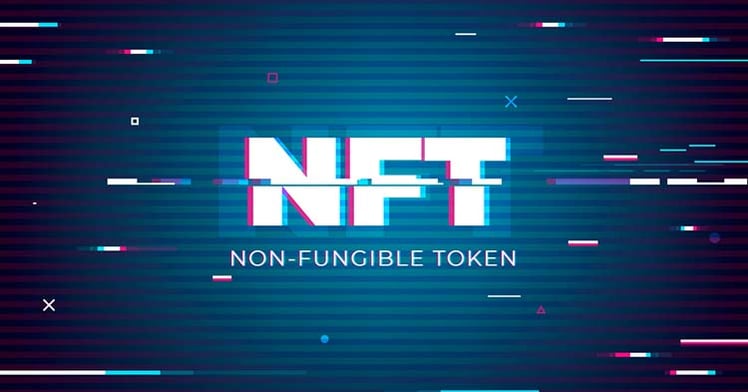
NFTs, non-fungible tokens, have been around since 2014, but they really became more well-known in 2021. So much so that Collins Dictionary made NFT its word of the year in 2021. NFTs as a concept are pretty nebulous, so what are they and do they have a place in your portfolio?
What is an NFT?
Maybe the best place to start is by defining fungible:
“Able to replace or be replaced by another identical item; mutually interchangeable.”
Paper currency is fungible. If I have a ten-dollar bill and you give me two five-dollar bills for it, I still have $10. A diamond is non-fungible. If you and I both have diamonds and we exchange them, they would not be of equal value. One may be bigger, have fewer flaws, and have better clarity. No two diamonds are alike, so the value of each one is unique to that diamond.
Part of what gives diamonds their value is their unique properties; keep that in mind.
NFTs are a digital representation of assets created and stored within the blockchain. Each NFT has a unique code that distinguishes it from any other NFT and prevents it from being replicated. An NFT can be anything that can be digitized: a photo, a GIF, a Tweet, a poem, a song, a trading card, etc.
Creating an NFT is called “minting,” and NFTs are sold on NFT marketplaces like OpenSea or Binance. Like eBay, some NFTs are auctioned, and some can be bought instantly.
Marketplaces are not the only place to buy an NFT. The art world has been an early adopter, with venerable auction houses Christie's and Sotheby’s selling NFTs. In fact, in March of 2021, Christie’s sold an NFT by digital artist Beeple for a record-smashing $69 million making him one of the top three most valuable living artists.
NFTs have the capability for real-world applications, including managing and protecting sensitive data for individuals, businesses, and governments.
Potential Pros of NFTs
NFTs are created and stored using blockchain technology, which is nearly impossible to alter, hack, or delete. NFTs have a clear record of ownership and authenticity. Collectibles like art and wine can and have been forged, making their value worthless.
Certain collectibles have historically grown in value, and NFTs have the same potential. A Beeple NFT (not from the collection sold at Christie’s) was purchased for just under $1,000 and less than four months later was valued at $300,000.
Potential Cons of NFTs
Many people think NFTs are merely a fad, the Pet Rock of the 2020s. NFTs have a higher risk associated with them compared to all of the potential alternative assets we cover in this series. NFTs don’t generate income, and whatever value they may have is only realized when they’re sold.
Additionally, the market for NFTs is relatively small, making them an extremely illiquid investment.
While NFTs can’t be counterfeited, there have been cases where an artist’s work was turned into an NFT and sold without their permission. If you were to buy an NFT in these circumstances, you might face a legal battle and be forced to give up the piece without compensation.
An interesting consideration is the amount of power an NFT uses. The entire crypto and crypto-adjacent industry is about as far from green as you can get. The amount of energy required for creating and storing NFTs is tremendous and produces carbon emissions.
How to Invest in NFTs
Investors are able to buy NFTs via a marketplace. Like cryptocurrency, there are ways to make NFT-adjacent investments if you’re intrigued by the concept but not quite ready to invest in NFTs directly:
- Blockchains like Ethereum, Binance, and Solana
- Blockchain scaling solutions like Polygon and Immutable X
- NFT marketplaces like Coinbase
Even if you are skeptical of cryptocurrencies and particularly NFTs, the larger industry around them, particularly blockchains, appear to be here to stay. For investors who may be skeptical of cryptocurrency or NFTs, the technology behind them has the potential to become a real-world application in the not very distant future, making them something to keep as a potential investment to monitor.



